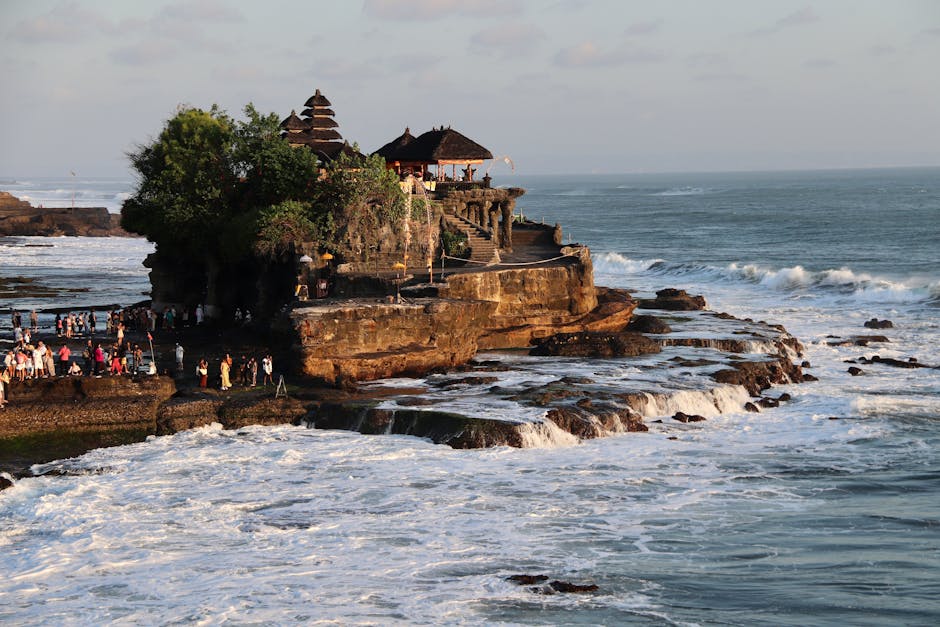Introduction to Cocoa Sustainability: The Bali Perspective
Cocoa farming in Bali is not just about producing chocolate; it’s a step towards a more sustainable future. In this tropical paradise, farmers are adopting eco-friendly practices to grow cocoa, aiming to protect the environment and support their communities. Bali’s approach to cocoa sustainability means carefully managing resources like water and soil, and avoiding harmful chemicals that can hurt the planet. These farmers are part of a larger movement that doesn’t just focus on the end product but cares deeply about how cocoa is grown. They’re using traditional methods combined with innovative techniques to ensure the cocoa you enjoy in your chocolate bar leaves a positive mark on the world. This perspective from Bali is a shining example of how the journey of cocoa from farm to your favorite chocolate treats can contribute to a healthier planet.
The Life Cycle of a Cocoa Bean on Bali Farms
Cocoa beans start their journey soaked in the rich, fertile soils of Bali. Local farmers, deeply connected to their ancestral lands, begin by planting cocoa seeds. These seeds sprout into young cocoa trees, which take about five years to mature fully and start bearing fruit. The magic happens when these trees produce cocoa pods, large, colorful fruits that house the cocoa beans. A cocoa pod takes about five to six months to reach maturity, changing colors as it grows. Once ripe, farmers carefully harvest these pods by hand, a testament to their dedication and precision.
After harvesting, the real transformation begins. The pods are cracked open to reveal the cocoa beans, surrounded by a sweet, sticky pulp. These beans are then gathered and go through a crucial fermentation process for about five to seven days. This step is vital—it’s what gives the cocoa its deep, rich flavor. After fermenting, the beans are laid out to dry under the Bali sun, a natural process that can take up to two weeks. Drying reduces the moisture and locks in the flavor, preparing the beans for their next journey.
The dry, fermented beans are packed and sent off from the farm, destined to become the chocolate you know and love. It’s a long process, from seed to chocolate bar, driven by the dedication of Bali’s cocoa farmers. This journey not only sustains the traditional farming practices of Bali but also contributes to the sustainability and richness of the chocolate industry. Every bite of chocolate starts with the life cycle of a cocoa bean on Bali farms—a testament to the labor of love that goes into sustainable chocolate making.
The Importance of Sustainable Farming Practices in Cocoa Production
Sustainable farming isn’t just a fancy term; it’s crucial for the planet and our chocolate bars. When cocoa farmers in Bali adopt sustainable practices, they help in maintaining soil health, conserving water, and reducing chemical use. This means they grow cocoa without harming the environment. Cocoa plants are happier in a natural setting, leading to better quality beans. This not just about being kind to the earth. It also means the cocoa in your chocolate bar tastes better and is healthier. Plus, sustainable farming ensures farmers get a fair deal for their hard work. By supporting chocolate made from sustainably farmed cocoa, you’re helping the planet, the farmers, and treating yourself to a better chocolate bar. It’s a win-win-win situation.
Challenges Faced by Cocoa Farmers in Bali
Cocoa farmers in Bali face several tough challenges. First off, weather can be unpredictable. Sudden rain or drought impacts cocoa crops, leading to less yield. Then there’s pests and diseases, like the cocoa pod borer, that can ruin entire harvests. Another big issue is market prices. They can fluctuate a lot, and often, farmers get a low price for their cocoa, making it hard to earn a good living. Access to the latest farming technology and methods is also limited for these farmers, making it tough to increase crop yields and quality. Lastly, land ownership issues can arise, putting farmers at risk of losing their farms. All these challenges make it hard for Bali’s cocoa farmers to thrive.
The Role of Fair Trade in Supporting Cocoa Sustainability
Fair Trade plays a pivotal role in cocoa sustainability, ensuring farmers get a fair deal for their labor. When you choose a chocolate bar stamped with the Fair Trade logo, you’re making a significant choice. This logo isn’t just a mark; it ensures the farmers in Bali and other cocoa-producing regions receive a fair, stable income. Let’s break it down simply — Fair Trade means:
- Better Livelihoods: Farmers are paid fairly, enabling them to provide for their families and invest in their futures.
- Community Growth: Extra funds from Fair Trade premiums go into local projects like schools and hospitals, uplifting entire communities.
- Sustainable Farming Practices: Fair Trade standards encourage environmentally friendly farming, ensuring farms thrive without harming the planet.
In essence, by supporting Fair Trade chocolate, you’re part of a cycle of positivity. You help improve the lives of cocoa farmers, contribute to the growth of their communities, and advocate for the environment. It’s a win-win-win situation. So next time you’re picking out a chocolate bar, remember the power of that Fair Trade logo. It’s more than just chocolate; it’s a choice for a better world.
From Farm to Factory: The Sustainable Processing of Cocoa
Sustainable cocoa starts its journey on Bali’s lush farms before it makes its way into your chocolate bar. The farmers in Bali use organic practices to grow cocoa, avoiding harmful pesticides and fertilizers. They work the land with care, ensuring the soil stays healthy and rich. Once harvested, the cocoa beans are then taken to processing facilities, but here’s where it gets interesting. These facilities focus on sustainable processing. This means they use methods that save energy and reduce waste. For example, they dry the cocoa beans naturally under the sun instead of using energy-intensive dryers. After drying, the beans are carefully roasted. This step is crucial as it brings out the chocolate flavor we all love. The roasting is done at just the right temperature to make sure the beans don’t lose their beneficial antioxidants. Lastly, the beans are ground into cocoa paste, which is the base of your chocolate bar. Throughout this process, there’s a big emphasis on minimal processing. This approach not only keeps the chocolate more natural and healthy but also lessens the environmental impact. So, when you enjoy a piece of chocolate sourced from Bali, you’re tasting the result of a process that respects the earth and aims for sustainability every step of the way.
The Impact of Sustainable Cocoa on the Environment
Sustainable cocoa farming in Bali plays a huge role in protecting the environment. By using methods that don’t harm the land, farmers ensure that the soil stays healthy and full of nutrients. This kind of farming avoids the use of harmful chemicals, which can damage the soil and water sources. Instead, farmers use natural ways to keep pests away and to fertilize their crops. This helps in maintaining biodiversity, meaning more types of plants and animals can thrive in these areas. Also, sustainable cocoa farming helps in fighting climate change. Trees used in cocoa farms store carbon, which reduces the amount of carbon dioxide in the atmosphere. This is crucial because too much carbon dioxide is a major reason for the planet warming up. In short, when you choose chocolate made from sustainable cocoa from places like Bali, you are indirectly supporting farming practices that are good for the earth.
How Consumers Can Support Sustainable Cocoa Production
To back sustainable cocoa production, start by picking chocolate products tagged with certifications like Rainforest Alliance, Fair Trade, or Organic. These labels mean the cocoa farms follow practices good for both people and planet. Paying a bit more for your chocolate bar can make a huge difference. It helps cocoa farmers earn a fair wage, allowing them to improve their living standards and invest in sustainable farming methods. Also, spread the word! Talk about the importance of sustainable cocoa with friends and family or through your social media. Sharing information increases awareness and can influence others to make mindful choices. Lastly, support local chocolatiers and brands that source their cocoa responsibly. By doing so, you’re backing smaller businesses committed to ethical practices. Every time you buy a chocolate bar, think of it as a vote for the world you want to live in.
The Journey of Sustainable Cocoa into Your Chocolate Bar
Sustainable cocoa starts its journey in the lush landscapes of Bali, where farmers carefully tend to their crops using methods that are good for the planet. These farming techniques ensure the soil stays healthy and the ecosystems around the farms thrive. First, the cocoa beans are harvested by hand, a method that supports local workers and keeps the tradition alive. Next, these beans undergo a fermentation process, a crucial step that unlocks the rich flavors we all love in chocolate. After fermentation, the beans are dried under the Bali sun, turning them into the raw cocoa that is ready for its next journey.
Transportation comes next, where the dried cocoa beans travel from the farmers in Bali to chocolate makers around the world. These makers are part of the sustainable journey, ensuring they source cocoa responsibly and maintain the quality without harming the environment. The transformation from bean to bar happens here. The cocoa beans are roasted, ground, and then mixed with other ingredients to finally become the chocolate bars we find in stores.
The journey doesn’t stop when the chocolate reaches your hands. Every time you choose a bar made with sustainable cocoa, you’re supporting a chain that values the planet and its people. You’re not just enjoying a treat. You’re part of a story that begins in the heart of Bali’s farms and ends with the sweet satisfaction of knowing you’re making a difference. So, the next time you savor a chocolate bar, remember the journey it’s been on from sustainable cocoa farms to your hands.
Conclusion: The Sweet Taste of Sustainability
Sustainable cocoa from Bali is not just about making chocolate; it’s about creating a positive impact from farm to bar. Every bite of chocolate you enjoy can either support a cycle of exploitation or contribute to a cycle of sustainability. By choosing chocolates made from sustainable cocoa, you’re not only savoring the rich, complex flavors that only such cocoa can provide but also supporting fair wages for farmers, better farming practices, and the preservation of the environment. It’s a small choice that makes a big difference. So, the next time you’re about to indulge in your chocolate craving, remember the journey of those cocoa beans. It’s a sweet taste, not just in flavor, but in the knowledge that you’re part of a better, more sustainable world.








